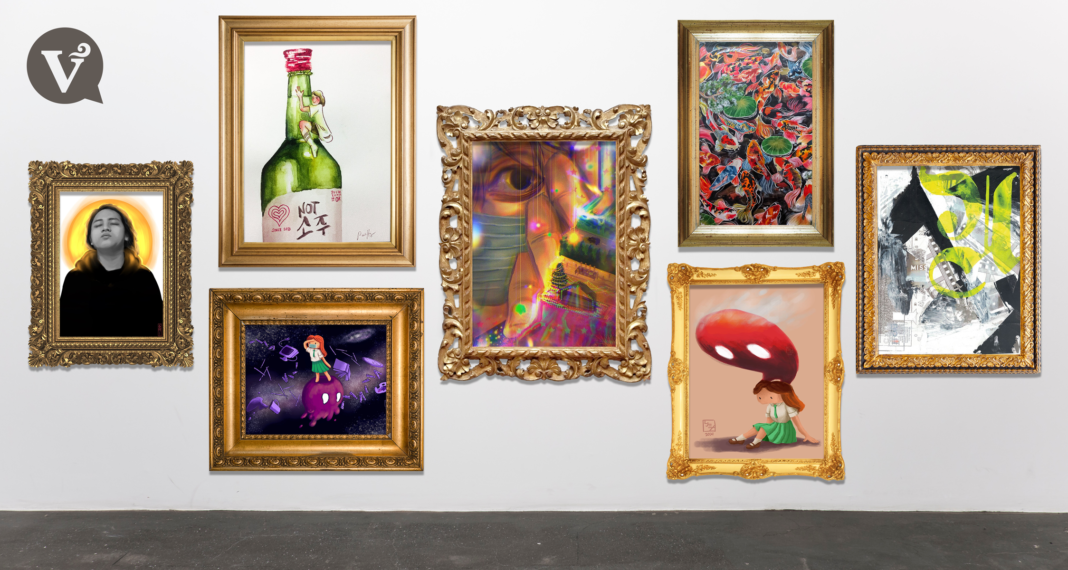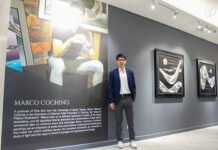Covid-19 and its impact on student life were front and center in the virtual exhibit launched by the UST College of Fine Arts and Design’s Polymath Art Society, titled “Leo Da Vinci vs.The World (Pandemic)” on Sept. 22.
Polymath Art Society Vice President Jerrick Prince Julian said the exhibit title was inspired by the comic book, “Scott Pilgrim vs. the World,” but with Italian painter and polymath Leonardo Da Vinci as the muse, symbolizing the art society members and how they managed to cope with the pandemic.
“The aim of the exhibit is not just to simply showcase the works our members had done during the pandemic, but to become a medium that allows them to vent out pent-up feelings in their own unique and artistic ways,” he told the Varsitarian.
The pieces in the exhibit range from digital, pen and ink, and mixed media art, to oil, acrylic, watercolor, and Gouache or opaque watercolor paintings. The exhibit featured 21 artworks from 17 fine arts students.
Lindsay Almonte’s “Where Do We Go From Here” is a 4881 x 3600 px digital art that features the artist’s reflection on the Covid-19 pandemic as something akin to the dark outer space where time is an illusion.
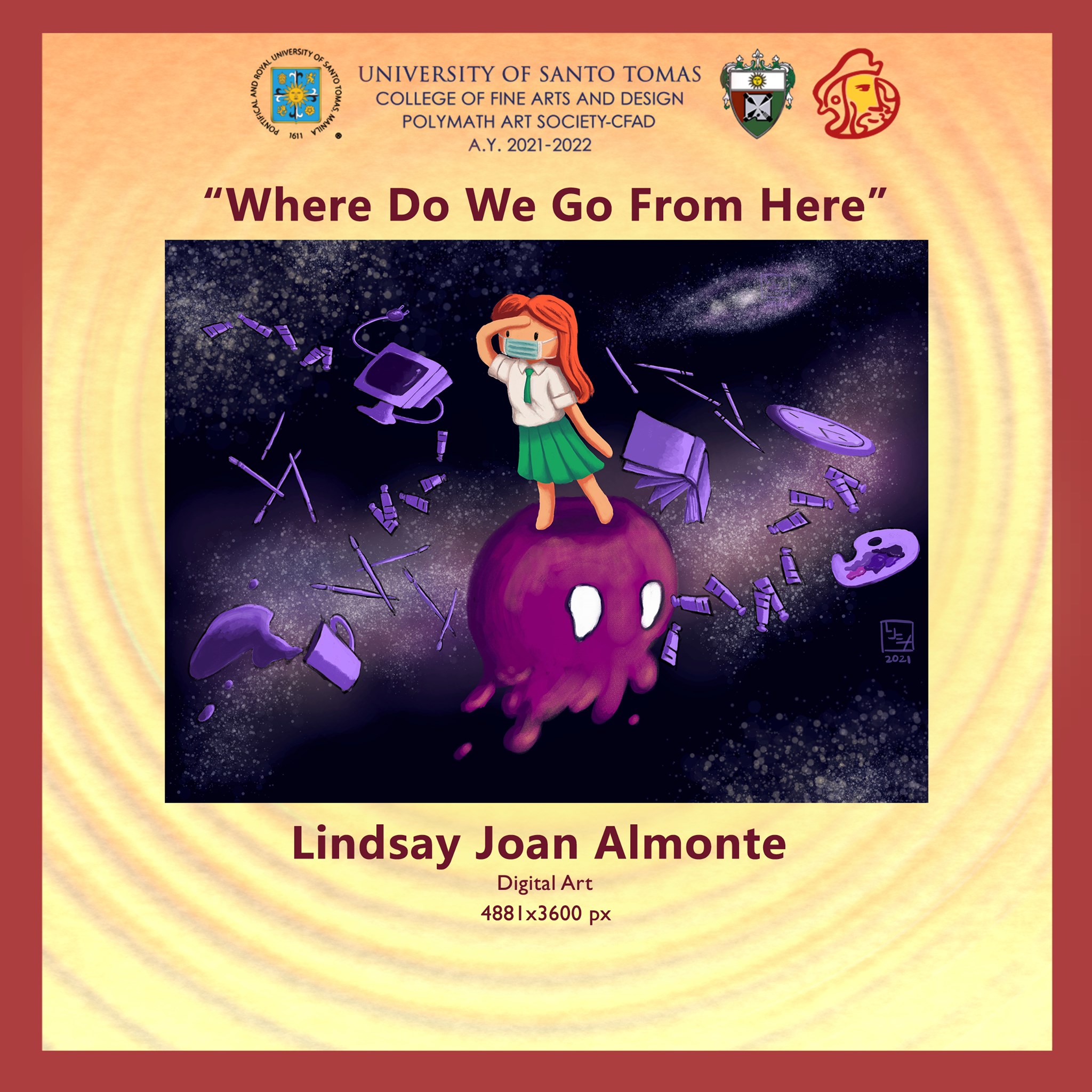
In her artist’s statement, she said, “[O]ur minds are cluttered. We are left floating aimlessly and are left wondering where our uncertain future will lead us while the virus is still thriving among us.”
Her piece “Overheat” uses the cartoon style in depicting a young school girl looking at the ground while a big, red ghost-like creature looms over her.
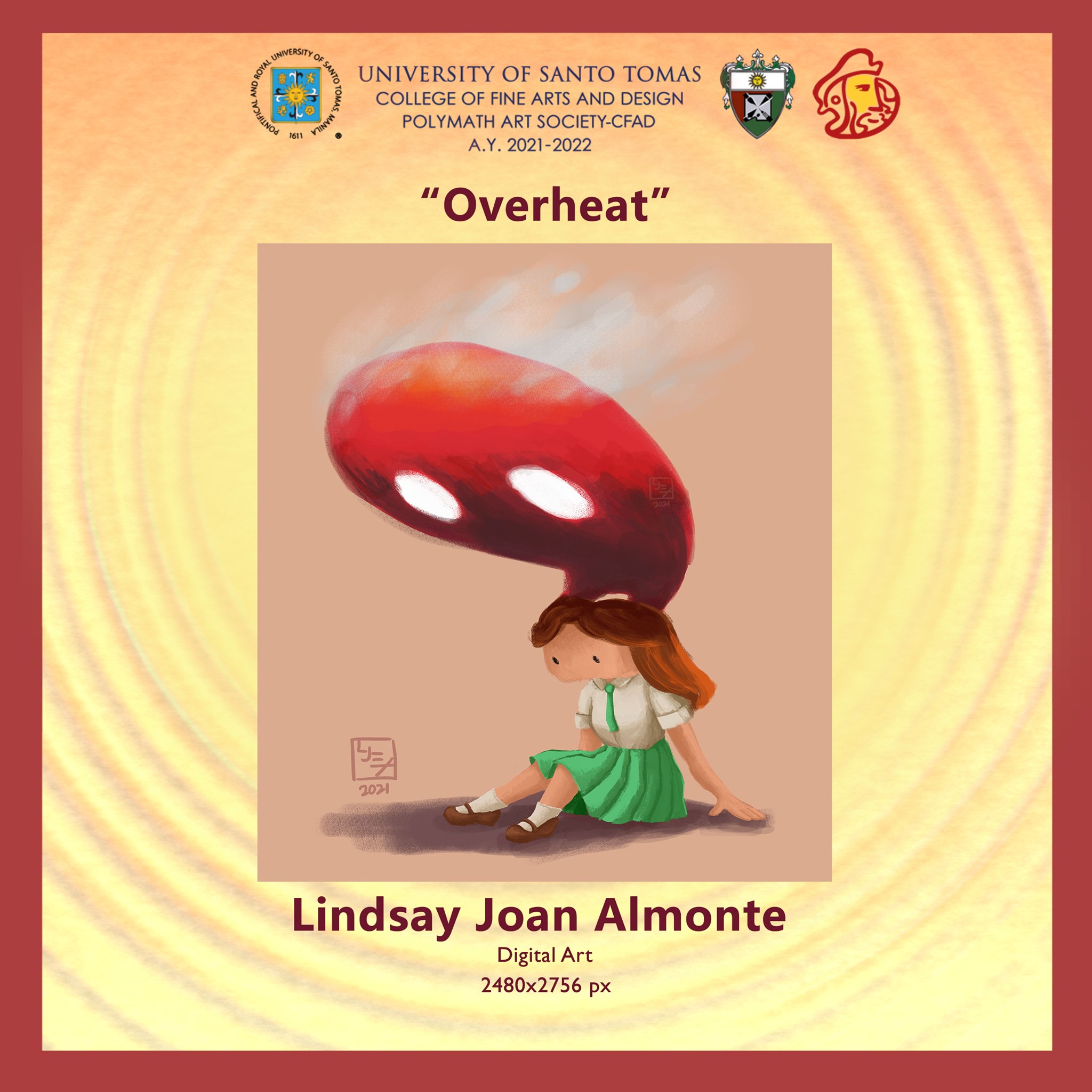
The themes of fear, isolation, uncertainty, and anxiety brought about by the pandemic are highlighted in John Abiad’s “Tear Made Threads,” Isaiah Maatubang’s “Spacing Out,” and Rafael Torrejon’s “The Process of Anxiety.” Works by Sofia Christina Villano and Lemuel Blanco carry the same themes.
Pieces like “Gunita,” a 960 x 1280 px digital art by Adrienne Jade Castro, and the 8.5 x 11 in. mixed media painting “Archive of Longings” by Angelika Laberinto, deals with nostalgia for the time before the pandemic, and uses it as motivation to endure the lockdowns.
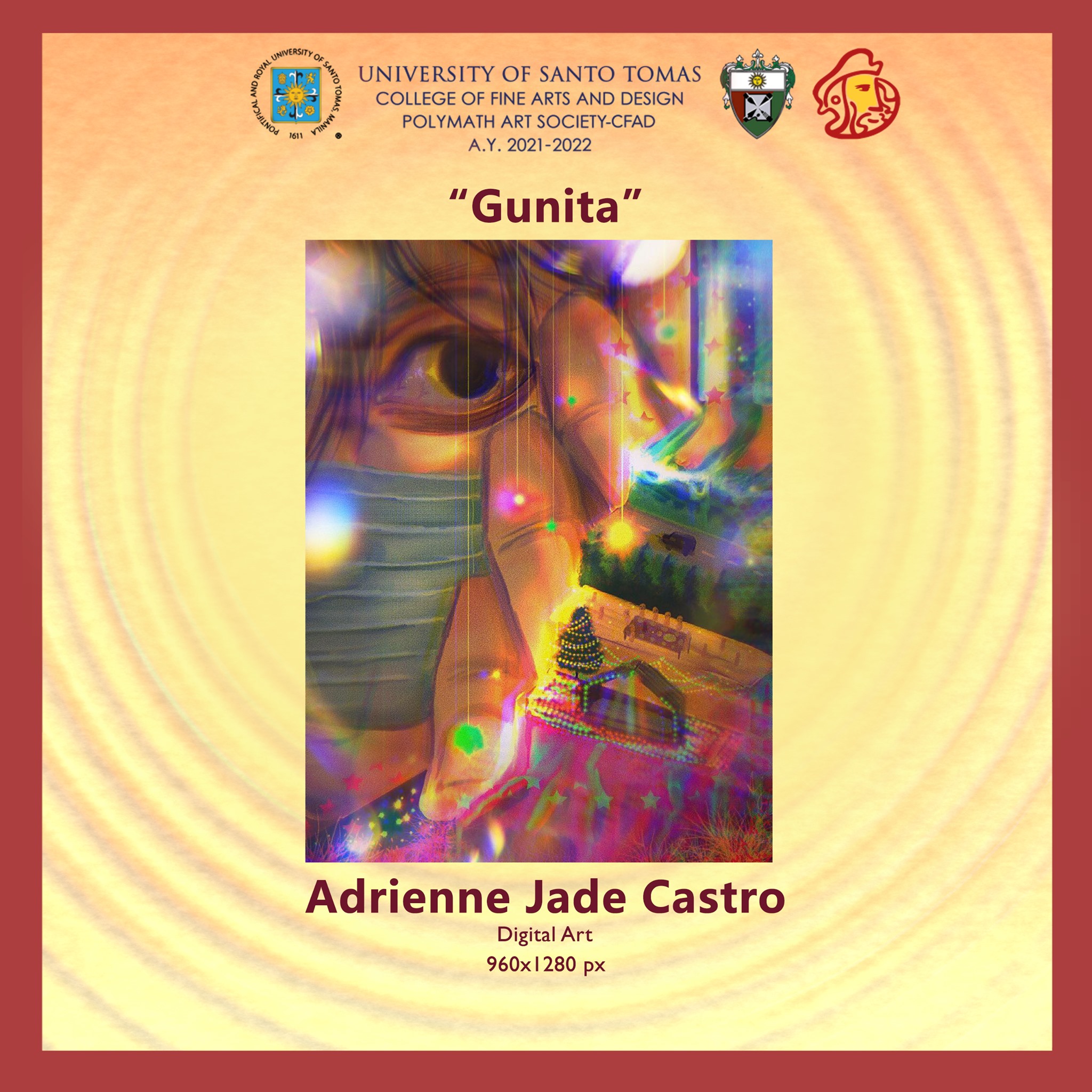
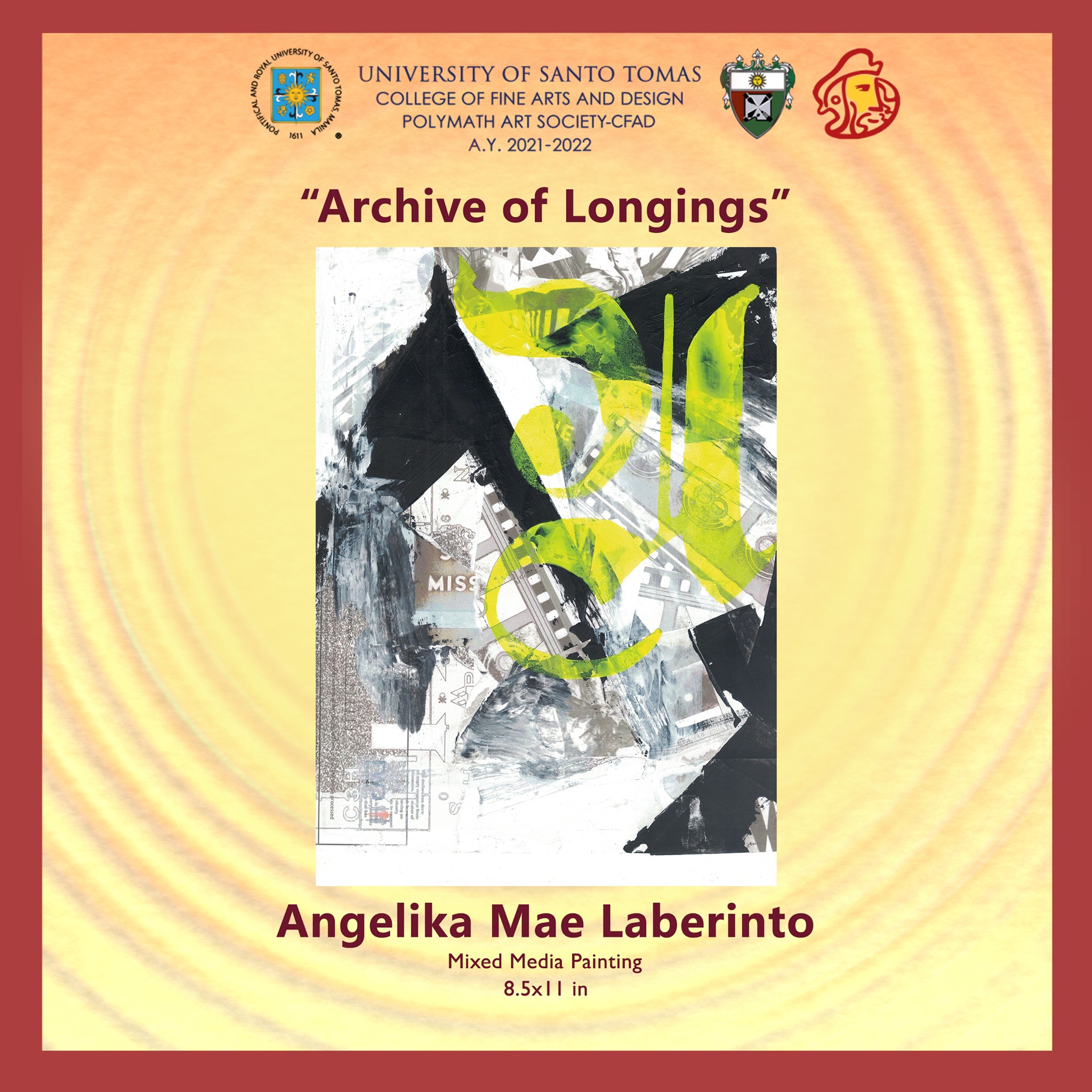
Julian portrays how meditation helped him in “Paglinay,” while “mild unhealthy obsessions and interesting subcultures” as coping mechanisms are visualized by Pauline Hugo through “It’s Okay.”
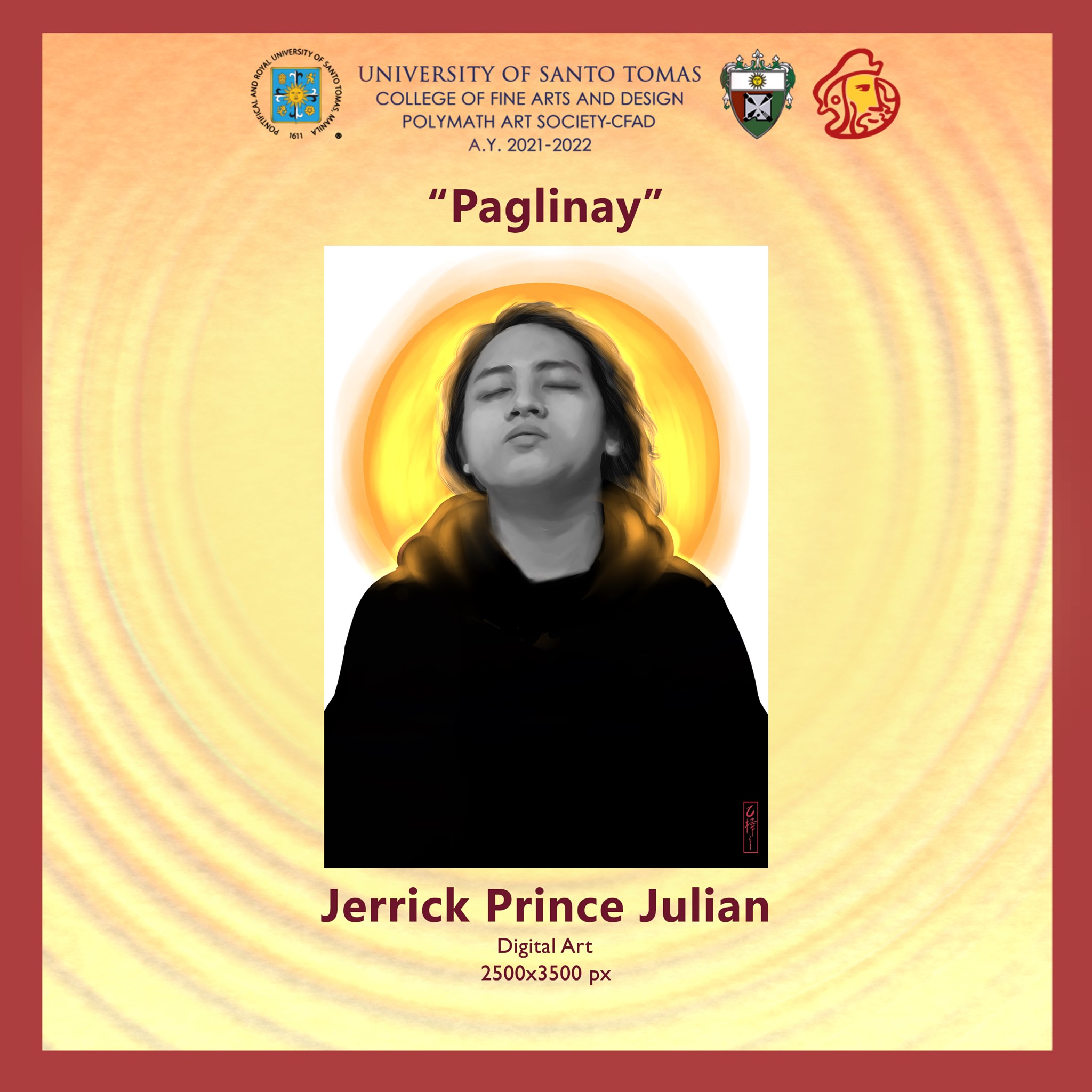
Hugo’s work, a 9 x 12 in. watercolor painting of a woman hugging a large bottle of soju, the Korean alcoholic beverage, but labeled “not soju,” tells viewers that people should forgive themselves with how they dealt with the pandemic, whether in online schooling or work, falling relationships, or toxic family situations.
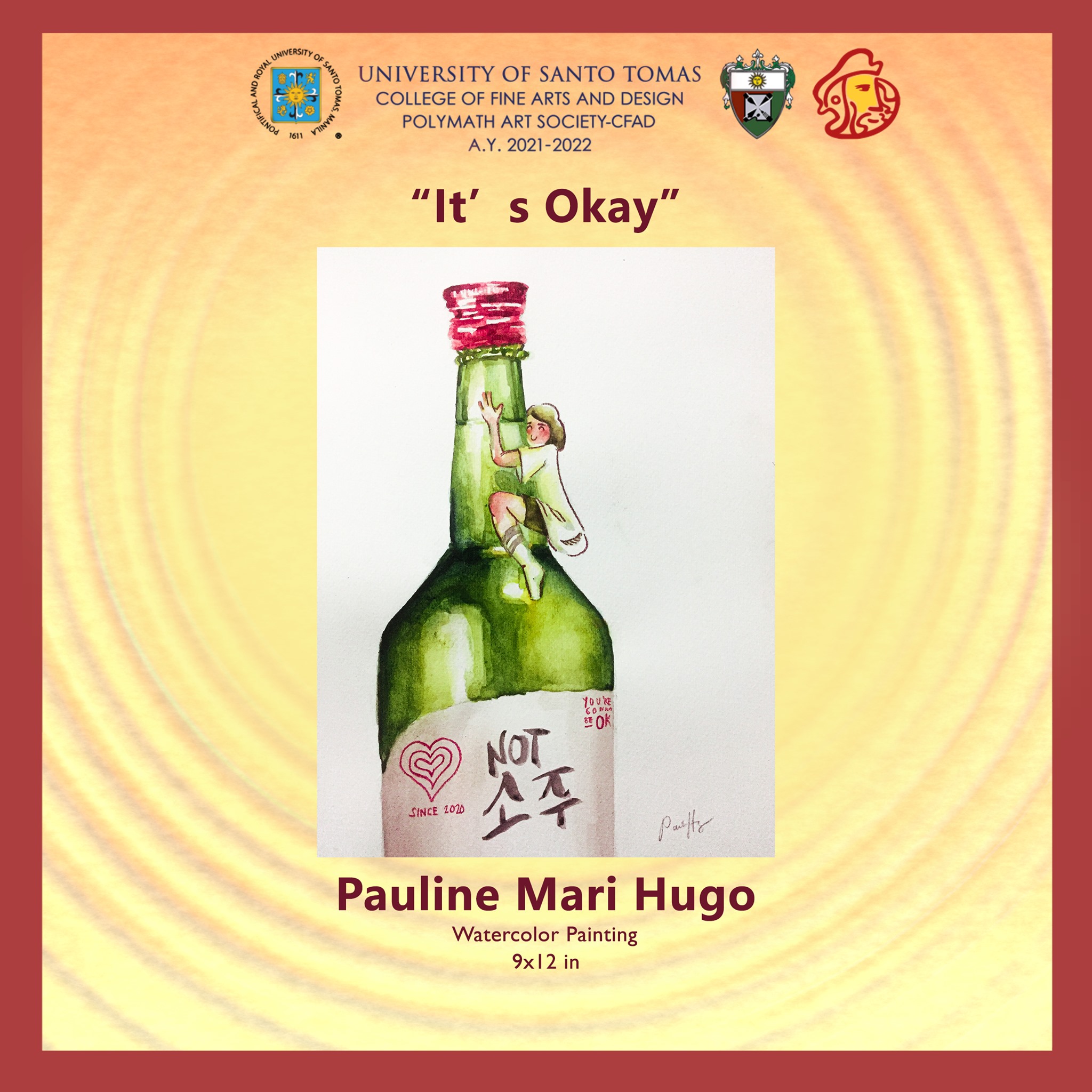
“I believe that we owe it to ourselves to have this constant reminder as we try to hustle our way out of our current situation. This way, we acknowledge our emotions and use them to adapt to our true purpose in life,” the artist’s statement read.
The exhibit also highlighted the theme of determination and perseverance in life despite the challenges brought about by the pandemic, through the work of advertising arts major Preetee Bhoonderowa.
Bhoonderowa’s 24 x 35 in. acrylic painting heavily focuses on the Koi fish, a symbol of good luck among the Japanese and is also associated with strength and perseverance amid chaos. It took the artist two months to paint the intricate details.
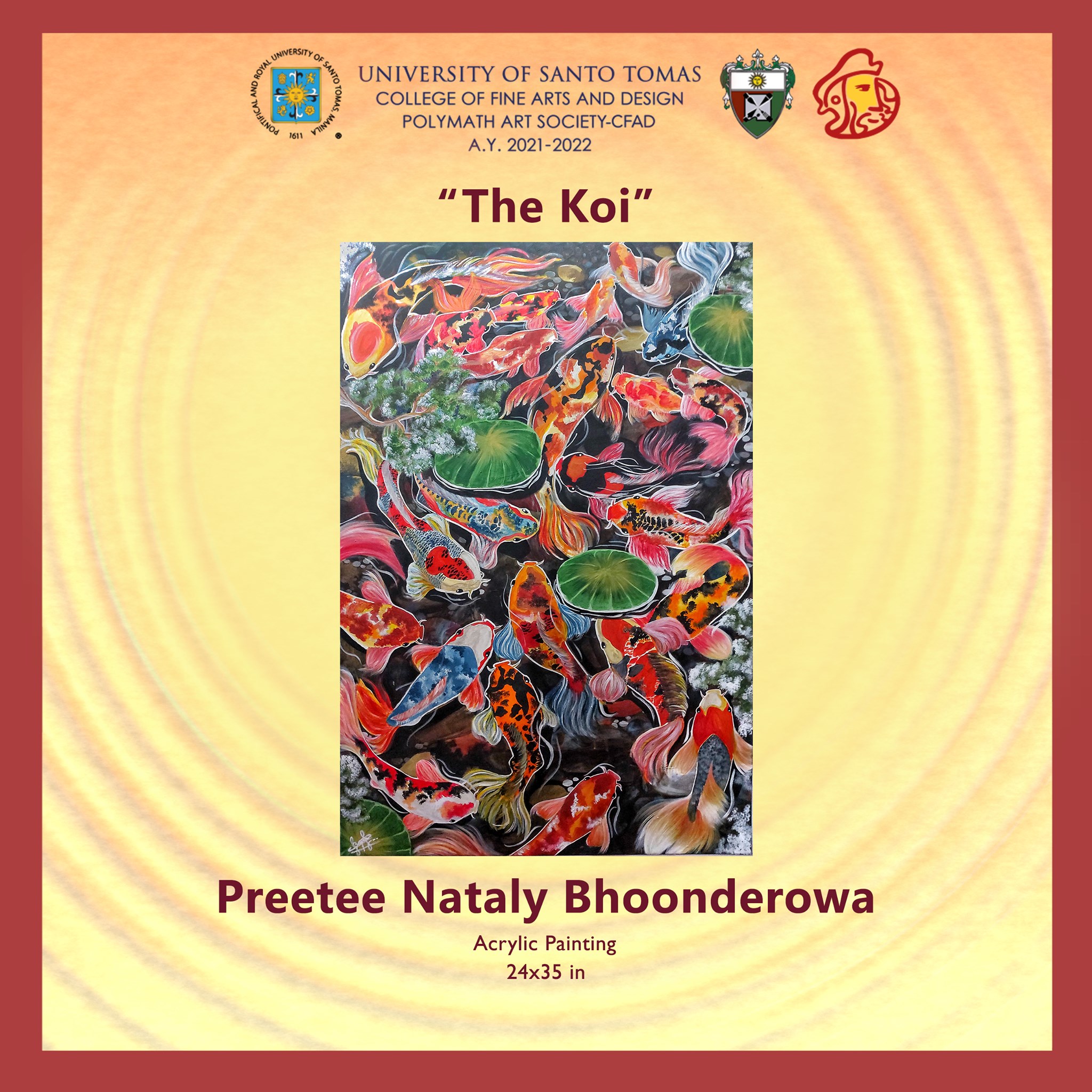
This was the second online exhibition launched by the society, following “In Retrospect,” which opened last May 17. The featured artworks in their first virtual exhibit also tackled the themes of struggle, introspection, and hope amid the pandemic.
“Art brings out the soul these artists have,” Julian said, “We realize their (artists) own struggle, their own thoughts, and philosophy. It’s not always about the technique but the heart that’s behind it, and we hope that’s what everyone would get.”
Established in 2016, the Polymath Art Society is an organization under the painting program of CFAD.
The virtual gallery featuring all artworks, along with its artists’ statements, can be viewable online via the Artsteps app and website.


